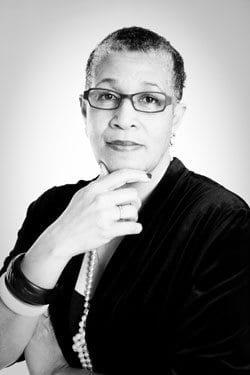
Google “Fox Point” in Rhode Island, and about 380,000 results pop up. Most of them focus on this pricy East Side neighborhood of Providence located at the bottom of the hill from Brown University and bound by the Providence and Seekonk rivers.
As it is now, Fox Point is home to approximately 4,526 residents of which 78 percent are white. But this was not the case 50 years ago. Back then Fox Point was home to a robust community consisting largely of immigrants from the West African archipelago of Cape Verde.
“Fox Point is gone. It only exists in the memory of the people,” says historian and filmmaker Claire Andrade-Watkins in “Some Kind of Funny Porto Rican: A Cape Verdean American Story,” a documentary about the beloved community of her birth and upbringing.
Despite the former community’s invisibility today, Andrade-Watkins uses first-person accounts, photographs, home movies, music and family memorabilia to render a powerful resurrection of the Fox Point of her youth, telling the story of how it emerged and was eventually displaced by urban renewal in the 1960s and 1970s.
In the documentary, we meet the forgotten people of Fox Point, like relatives who lived to see the neighborhood transform from a home-away-from-home to the strange and distant place that it is now. There are close friends of the family, like John “Johnny” Britto or Manuel “Manuch” Mendes who lays down Fox Point’s back-story from a pew in a Cape Verdean church in that community. Their stories begin with their grandparents, like Andrade-Watkins’ own grandmother, born in the island of Boa Vista, and having sailed to America from the island of St. Vincent, arriving in Rhode Island after 48 long days aboard a ship used for transporting people from Cape Verde to America.
Once here, the Cape Verdean people anchored in Fox Point during the early 20th century worked on the waterfront and in the factories, as domestics at Brown University and in the wealthy homes on the east side. This community had an economic engine that was fueled by the port, where most of the men worked as longshoremen, members of Local 1329 of the International Longshoremen’s Association (ILA), which was founded in l933 and was the first black and predominantly Cape Verdean union in New England.
The documentary illustrates how Fox Point residents maintained their old country customs and beliefs; how they had children who grew to be men and women, like Andrade-Watkins herself, a second generation Cape Verdean American. Her beautiful prose helps to narrate this American story about the first group of West Africans to come to the United States voluntarily.
Produced in 2006, the documentary is the first in what Andrade-Watkins is calling a trilogy of feature documentaries about the Fox Point community. The North American world premiere was at the Museum of Fine Art in Boston, and the work has been met with critical and popular acclaim nationally and internationally before coming around full circle in May and July 2010 to air on WSBE-TV 36, Rhode Island’s PBS channel.
The second documentary, now in post-production, is “Atlantic Portals,” which picks up during the urban renewal crisis. “Atlantic Portals” emerges from the rubble, and returns to Cape Verde in search of “home” and comes back to Fox Point today.
“Working the Boats,” the final film in the trilogy, focuses on the golden years of the Local 1329 of the ILA, between the 1940s and the early l970s.






